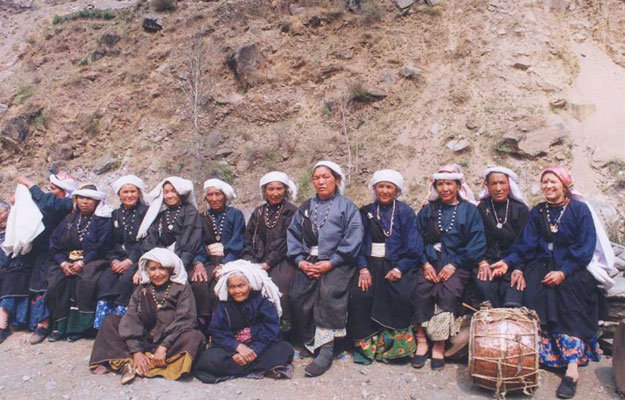The images were evocative, exotic and intriguing. Gandhian, non-violent and extremely moving. Deep in the Himalayan mountains of Uttar Pradesh, the poor women of Reni village, led by Gaura Devi, were giving the government an environmental lecture. This was 1974 -- at a time when hardly anyone had heard about the importance of the environment. And, to boot, the women were telling the government that it could cut the forests only over their dead bodies. They would hug the trees to protect them from the axe.
The Cause of the Environment
"Ecology is permanent economy."
 Officialdom was totally confused. Hemvati Nandan Bahuguna, the then chief minister of the state, himself a mountain man, had rushed to set up a committee to look into the scientific validity of the rustic claims. The committee had supported the villagers.
Officialdom was totally confused. Hemvati Nandan Bahuguna, the then chief minister of the state, himself a mountain man, had rushed to set up a committee to look into the scientific validity of the rustic claims. The committee had supported the villagers.
The women of Reni had many subtle messages. And incredibly important ones. They were saying loud and clear that they were not greenies of the western kind. For them the environment was much more than pretty trees and tigers. Their cause had entirely to do with themselves. Their own lives were so intertwined with the existence of trees that their very culture and survival was at stake without them.
Just two years before the Reni protest, I had heard prime minister Indira Gandhi tell the world's first international environment conference in Stockholm that "poverty is the biggest polluter". In other words, that poor countries must concentrate on becoming rich before they could start caring about their environment. But here in Reni the poor women were saying that when economic development comes with environmental destruction, it leaves them even more impoverished. That in poor countries, environmental destruction and social injustice are two sides of the same coin.
The powerful social message of Chipko galvanised the existing civil society in India working with poor tribals, women and other marginalised groups like those displaced by dams to incorporate the environmental cause within their own work. It was not ecology but socioecology at work. As there were hardly any environmental movements in the entire developing world in the '70s, the Chipko movement stood out, attracting worldwide attention. Adding to the global green cause with the argument that the poor and poor nations, too, must be careful to take care of their environment.
That environment and development must go hand in hand. It began to force Third World intellectuals overwhelmed by the western economic success to think afresh. By the late '80s Norway's prime minister Gro Harlem Brundtland was to run with the humble message of Reni women worldwide -- sustainable development. And it was to be endorsed by all nations at Rio de Janeiro in 1992, some 20 years after Stockholm.
 Officialdom was totally confused. Hemvati Nandan Bahuguna, the then chief minister of the state, himself a mountain man, had rushed to set up a committee to look into the scientific validity of the rustic claims. The committee had supported the villagers.
Officialdom was totally confused. Hemvati Nandan Bahuguna, the then chief minister of the state, himself a mountain man, had rushed to set up a committee to look into the scientific validity of the rustic claims. The committee had supported the villagers.
Here is my opinion on the content of the Chipko Movement.
I personally feel language bit amibigious rather i should say not in simple language to be understood by me atleast.